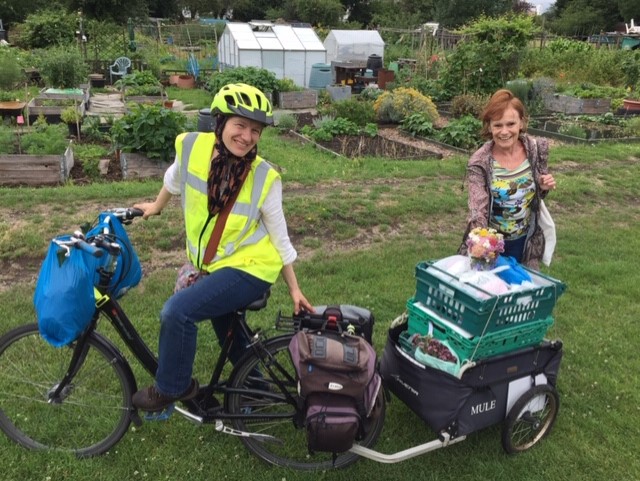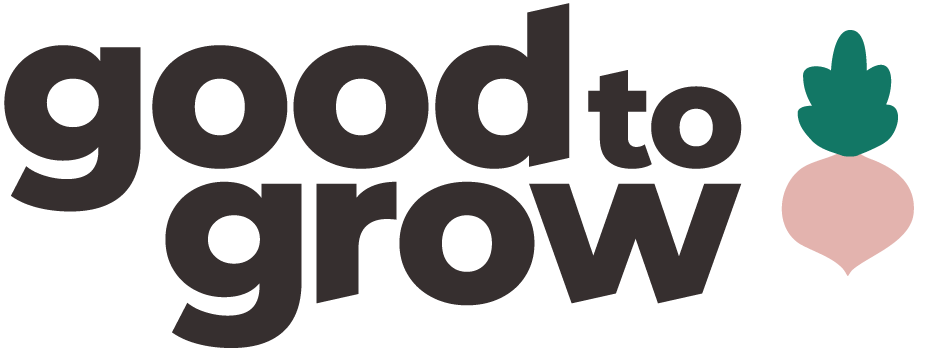Community gardens step up to grow food for over 1000 families affected by Covid-19
Whilst many people on low incomes or who have been shielding have struggled to access fresh food, Sustain's food growing networks have helped 50 community gardens across London, Manchester and Reading to grow four tonnes of food for those in need.

During the start of the pandemic around half of people who used a food bank had never needed one before and many of the providers of food parcels struggled to provide fresh produce to their users.
Capital Growth, Sustain's London food growers network, responded directly to the impact the pandemic was having on people’s access to fresh, healthy and affordable food by setting up the Community Harvest initiative, following requests from their member gardens. This has provided gardens the soil, plants, seeds and advice they needed to grow and donate food to their communities.
Community gardens, as well as home growers and allotment holders across the capital, have got involved with the initiative, which also helped gardens in Manchester, via Sow the City, and Reading through RISC. The gardens have connected with mutual aid groups, food banks and lunch clubs as well as directly with families, often reaching the most vulnerable people including elderly and disabled people as well as people on a low income. Wendy Alcock, Coordinator of Incredible Edible Barnet, who have grown over 700kg of fresh produce explains:
“Volunteers from my community garden [have] grown fresh food on a temporary allotment plot. We’ve donated our harvests to the Chipping Barnet Food Bank, Homeless Action Barnet and the Rainbow Centre. The organisations have been collectively feeding around 400-500 people per week and our fresh food has provided a higher nutritional content to the standard dried and tinned goods for their emergency food parcels supporting their clients.”
Steve Verrall, manager of Rainbow Community Centre who have received produce from Incredible Edible Barnet, commented:
“We often struggle to get fresh veg to distribute in our food bags. The veg is high quality and plentiful, providing excellent nutrition. Without the donation our clients would have mostly dry and canned goods which do not provide enough variety or nourishment, this is a great initiative which has helped many individuals and families.”
While the Community Harvest was not set up to solve bigger issues of food poverty, it has highlighted how urban gardens can strengthen community resilience and provide healthy food for cities. It also gives people more opportunity to visit their local community gardens, giving them access to nature, fresh air and potentially overcoming isolation. Those receiving food from the project can also get involved in the growing of the food.
Capital Growth have been working for over 10 years to help people grow food in the city and to demonstrate all the benefits of doing so and are calling on more people to get involved. Fiona McAllister, Coordinator of Capital Growth explained:
“The benefits of the project go further than simply providing food. We’ve been overwhelmed by the sense of community fostered between those growing food and those receiving food. This experience has really shown us what difference having a garden can make, we would love to see more gardens getting involved, as well as local councils around the country making sure people have access to the land and support to do so”.
The team will be working with councils in the next phase of the initiative.
Find your local community food garden in London
Find your local community food garden across the country
Participating gardens include:
- Glengall Wharf, Peckham South London are donating to the Southwark Food Bank and doubled their salad production this summer.
- The Lalley Centre in North Manchester is part of Caritas Diocese of Salford, a charity helping the most vulnerable children, young people and adults within the community. A team of paid staff and volunteers provide one-to-one advice and access to other support and welfare services. The on-site allotment provides nutritious and fresh produce to supplement their emergency food parcels, feeding more than 200 people each week.
- Growhampton led by Roehampton University’s student union has donated 200kg of campus-grown produce to the Roehampton Community Box launched by local organisation, Regenerate, in response to Covid-19, supporting young people and families in Roehampton and Putney.
- Surrey Docks City Farm was able to donate weekly food packages between April and July worth almost £700 to 27 local families. The farm has been sharing recipes to support the families to cook with the salad and veggies.
- Caty Palmer (home grower) has been donating seedlings and produce via her local mutual aid groups and community gardens in South London.
The first phase was funded by the A-Team Foundation and the Mayor of London. Thanks to additional funding from the City Bridge Trust London Emergency Response Fund, the initiative can continue to support the gardens until March 2021.
28/10/2020


